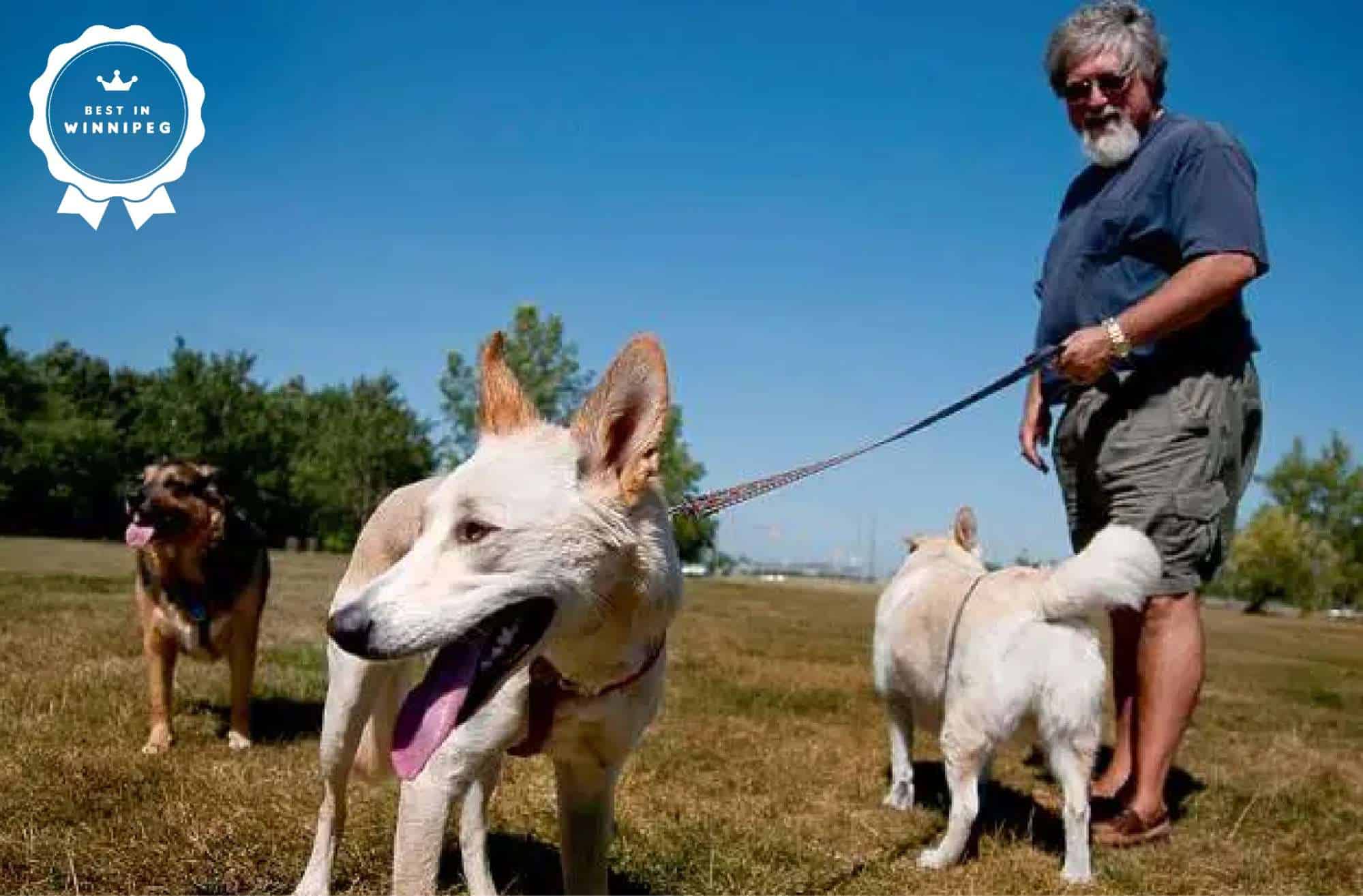Winnipeg Pet Licensing: How to Keep Your Pet Safe and Legal
As pet owners, we understand the deep bond we share with our furry friends. They bring joy, companionship, and unconditional love into our lives.
However, living in a vibrant city like Winnipeg means that there are certain responsibilities we must fulfill to ensure the safety and well-being of our beloved pets.
One crucial aspect of responsible pet ownership is licensing. In this guide, we will delve into everything you need to know about pet licensing in Winnipeg.
Whether you’re a new pet owner or a long-time resident, this information will help you navigate the licensing process with ease, providing you and your furry companion with peace of mind and a sense of belonging in our wonderful community.
What is pet licensing?

Pet licensing is a mandatory registration system enforced by local authorities. It involves obtaining a license, usually for a fee, to identify and track pets in a specific area.
It facilitates reuniting lost pets with their owners and helps ensure public safety.
Pet licensing is an essential requirement that promotes responsible pet ownership. By registering your furry friend, you contribute to their safety and the overall welfare of your community.
According to a study conducted by the American Veterinary Medical Association, over 600,000 pets are reported missing each year, but only 30% are reunited with their owners.
Pet licensing significantly increases the chances of a lost pet being returned home. Additionally, licensing helps animal control agencies respond promptly in cases of emergencies, such as natural disasters or disease outbreaks.
By licensing your pet, you become part of a collective effort to protect and care for our beloved companions.
Key Points about Pet Licensing in Winnipeg

In Winnipeg, pet licensing is required for all dogs and cats over the age of six months. The purpose of pet licensing is to ensure responsible pet ownership, promote public safety, and assist in reuniting lost pets with their owners.
Here are some key points about pet licensing in Winnipeg:
License Application
To obtain a pet license, you need to fill out an application form provided by the City of Winnipeg. The application form typically requires information about your pet, including their name, breed, age, gender, and any relevant identification details.
Renewal
Pet licenses need to be renewed annually. You will receive a renewal notice before the expiration date of your current license, and it’s important to renew the license promptly to avoid penalties or fines.
Fees
The City of Winnipeg’s official website or the appropriate department can provide the current fee schedule for obtaining a pet license.
The fees vary depending on factors such as the type of pet, whether the animal is spayed or neutered, and whether the owner qualifies for any discounts or exemptions.
Generally, cat licenses cost $61 annually, while dog licenses are priced at $40.75 annually for sterilized dogs, $123 annually for unsterilized dogs, and $97 annually for dangerous dog licenses.
Proof of Vaccination and Identification
In many cases, you will need to provide proof of your pet’s up-to-date vaccinations, such as rabies vaccination, at the time of license application or renewal. Additionally, microchipping or some form of permanent identification may be required.
Tag Display
Once you obtain a pet license, your pet will typically receive a tag that must be securely attached to its collar. This tag serves as a visible identifier that your pet is licensed, which can be helpful if they get lost.
Consequences of Non-Compliance
Failing to license your pet or renew the license within the specified time frame may result in fines or penalties.
Animal control officers or bylaw enforcement officers have the authority to enforce pet licensing regulations and may issue tickets or take other appropriate actions.
Requirements for Getting a Pet License in Winnipeg

To obtain a pet license in Winnipeg, you need to provide proof of rabies vaccination and consider microchipping or tattooing for identification.
Complete the application form, pay the fee, and submit it to the Animal Services Agency in person, by mail, or online.
In Winnipeg, it’s mandatory to license cats and dogs over the age of six months. By following a few straightforward steps, you can ensure that your furry companion is properly licensed and accounted for.
From providing proof of rabies vaccination to completing an application form, each requirement plays a crucial role in keeping your pet and the community safe.
Let’s explore these requirements in more detail to help you navigate the process of obtaining a pet license in Winnipeg.
Proof of Rabies Vaccination
Rabies vaccination is a crucial requirement for pet licensing. You need to ensure that your cat or dog has received a current rabies vaccination.
This vaccination helps protect not only your pet but also the community from the risk of rabies transmission. When applying for the license, you will be required to provide proof of this vaccination, typically in the form of a certificate from your veterinarian.
Microchip or Tattoo
Some municipalities may require permanent identification, such as a microchip or tattoo, as part of the licensing process.
Microchipping involves the insertion of a small electronic chip under your pet’s skin, which contains a unique identification number. Tattoos can also serve as identification markers.
These identification methods help ensure that lost or stray pets can be easily identified and returned to their owners.
Application Form
To apply for a pet license, you will need to complete an application form. The City of Winnipeg or the Animal Services Agency typically provides this form.
The application form collects essential information about you and your pet, including your contact details, your pet’s description, and any necessary documentation.
Payment
There is a fee associated with obtaining a pet license in Winnipeg. The fee can vary depending on factors such as the type of pet (cat or dog) and whether the pet is spayed or neutered or not.
Spayed or neutered pets may be eligible for lower fees as they help control pet overpopulation. The exact fee structure will be outlined on the application form or the official website of the City of Winnipeg.
Submitting the Application
Once you have completed the application form and gathered the necessary documents, you will need to submit them to the Animal Services Agency or the designated licensing authority in your area.
Depending on the available options, you may be able to submit the application in person at their office, by mail, or online through its website.
Make sure to follow the instructions provided by the licensing authority to ensure your application is processed correctly.
Steps to Obtain a Pet License in Winnipeg

To obtain a pet license in Winnipeg, you can follow these steps:
Contact the Animal Services Agency.
Start by reaching out to the Animal Services Agency in Winnipeg. You can visit its website or call its office to inquire about the pet licensing process.
It will provide you with the necessary information and guide you through the steps.
Check the requirements.
Familiarize yourself with the specific requirements for pet licensing in Winnipeg. These requirements typically include proof of ownership, proof of vaccination (usually for rabies), and information on the spay or neuter status of your pet.
Ensure you understand what documents or information you need to provide.
Complete the application.
Obtain the pet license application form from the Animal Services Agency. You can typically find it on its website, or you can request it directly from the agency.
Fill out the application form accurately and provide all the necessary details about yourself and your pet, such as your name, address, contact information, and your pet’s information.
Gather supporting documents.
Collect all the supporting documents that are required for the license application. This may include proof of ownership (such as a bill of sale or adoption certificate) and vet records.
You may also need documentation regarding the spay/neuter status of your pet, such as a certificate from the veterinarian.
Submit the application.
Submit your completed application form and supporting documents to the Animal Services Agency. Follow its instructions regarding the submission process.
It may require you to submit the application in person at its office or through an online portal. Make sure you double-check the submission requirements to ensure you provide all the necessary information.
Pay the license fee.
Pay the required license fee for your pet. The fee structure can vary depending on factors such as the type of pet, spay/neuter status, and the duration of the license (annual or multi-year).
The Animal Services Agency will provide you with the fee details, and you can typically pay by cash, check, or credit card.
Receive your pet license.
After your application and payment have been processed, the Animal Services Agency will issue you a pet license. This license serves as proof that your pet is licensed and meets the necessary requirements.
It often includes a unique identification number for your pet, which can be useful in case your pet gets lost or goes missing.
Consequences of Not Licensing Your Pet in Winnipeg

Not licensing your pet in Winnipeg can result in significant fines, legal troubles, limited protection, restricted access to services, and increased public safety concerns.
Additionally, it contributes to issues such as overpopulation and strains on animal care resources in the community.
Fines
When you fail to license your pet in Winnipeg, you can face fines imposed by the city. The amount of the fine varies depending on the local bylaws and regulations, but it can be a significant financial penalty.
The purpose of fines is to encourage pet owners to comply with the licensing requirement and to fund animal-related services and programs.
Legal Issues
By not licensing your pet, you are in violation of local bylaws or ordinances. This means that you may face legal consequences, which can include court appearances or legal proceedings.
It’s important to understand and follow the specific laws in your area to avoid potential legal troubles.
Limited Protection
Licensing your pet provides certain benefits and protections. For example, licensed pets often receive identification tags that display their license number and contact information.
This makes it easier for lost pets to be reunited with their owners, as anyone who finds them can quickly identify their owners and contact them.
Without a license, it can be more challenging to prove ownership and recover a lost pet.
Limited Access to Services
Some facilities and services may require proof of licensing before allowing entry. This can include dog parks, pet-friendly rentals, boarding facilities, or grooming salons.
By not licensing your pet, you may be restricted from accessing these services, limiting your options for pet care, recreation, or accommodation.
Public Safety Concerns
Licensing helps ensure that pets are properly vaccinated and have received the necessary health checks. When pets are licensed, authorities can track their vaccination status and other important medical information.
This helps control the spread of diseases and ensures the safety of both pets and the community. By not licensing your pet, you may be increasing the risk of transmitting diseases or other health issues to other animals or people.
Damage to the Community
Licensing fees often support programs and services aimed at addressing issues such as overpopulation, stray animals, and animal welfare. These programs may include spay/neuter initiatives, animal control services, or shelters.
By not licensing your pet, you are not contributing to these vital efforts and can indirectly contribute to issues such as pet overpopulation and the strain on animal care resources in your community.

